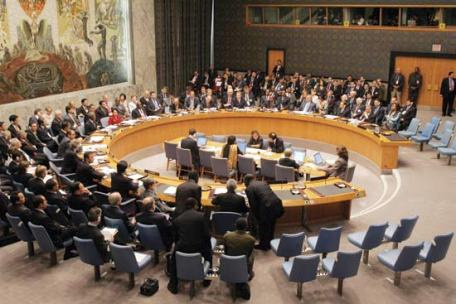Referring to the Security Council: A Symbolic Measure

IRD: The Iranian permanent representative to the UN called for condemnation of the US drone entering Iranian airspace. Can Iran complain in this regard to the UN?
YM: Generally speaking, any country has the right to refer a dossier to the Security Council, but it is the Council that decides whether Iran can propose the issue (based on the council’s internal regulations) or not, and then conducts a vote regarding its proposal. Iran can present its request at any time, but if not responded by the Security Council, Iran cannot take any other measure.
IRD: How can this be effective?
YM: The UN is the best institution to which Iran can submit its complaint, since it should decide whether violation of Iran’s sovereignty threatens international peace and security, as the UN only enters those cases threatening these domains.
IRD: So how could the issue be linked to international peace and security?
YM: In international law, there is no certain definition given about the instances of threats against or violation of international peace and security, as the issue can be seen in the declarations of the Security Council. Everything depends on the Council’s regulations. The Council assigns a priority to the complaint before putting it on the agenda.
IRD: And if it goes on the agenda?
YM: If that happens, the Council may release a statement or issue a resolution. In the Security Council, cases are dealt with in two ways: based on the sixth chapter of the UN Charter, the council can recommend that the parties negotiate and resolve their disputes in a friendly manner, or it can refer the case to the International Criminal Court or the International Court of Justice to resolve the issue in a friendly and legal manner. When there is a consensus among the members that the issue is related to international peace and security, it is dealt with under the seventh chapter and a resolution is issued to express condolences and recommend self-restraint to the parties.
IRD: Can Iran sue before a legal institution?
YM: Unfortunately no. A defect of the international community structure is that there are no independent courts whose eligibility is accepted by all parties. Since the legal tools are not adequate and diplomatic interests meddle, Iran cannot sue the US. The International Court of Justice is the only court to pursue such cases, though unless there is an agreement, no party is obliged to accept its competence. For instance, our reference to the friendship treaty between Iran and the US in 1955 made it possible to pursue the case of the USS Vincennes warship’s attack on an Iranian Airbus in 1988. Such circumstances may not exist in this case.
IRD: What can Iran do to succeed in its political and diplomatic approach?
YM: Here it boils down to using diplomatic tools. Resolutions, speeches and cooperating with friendly countries to garner support at the international level are the alternatives whose success depends on our allies’ weight on the international stage: the more important, the more effective our measures. Otherwise, all the measures will be just symbolic.

